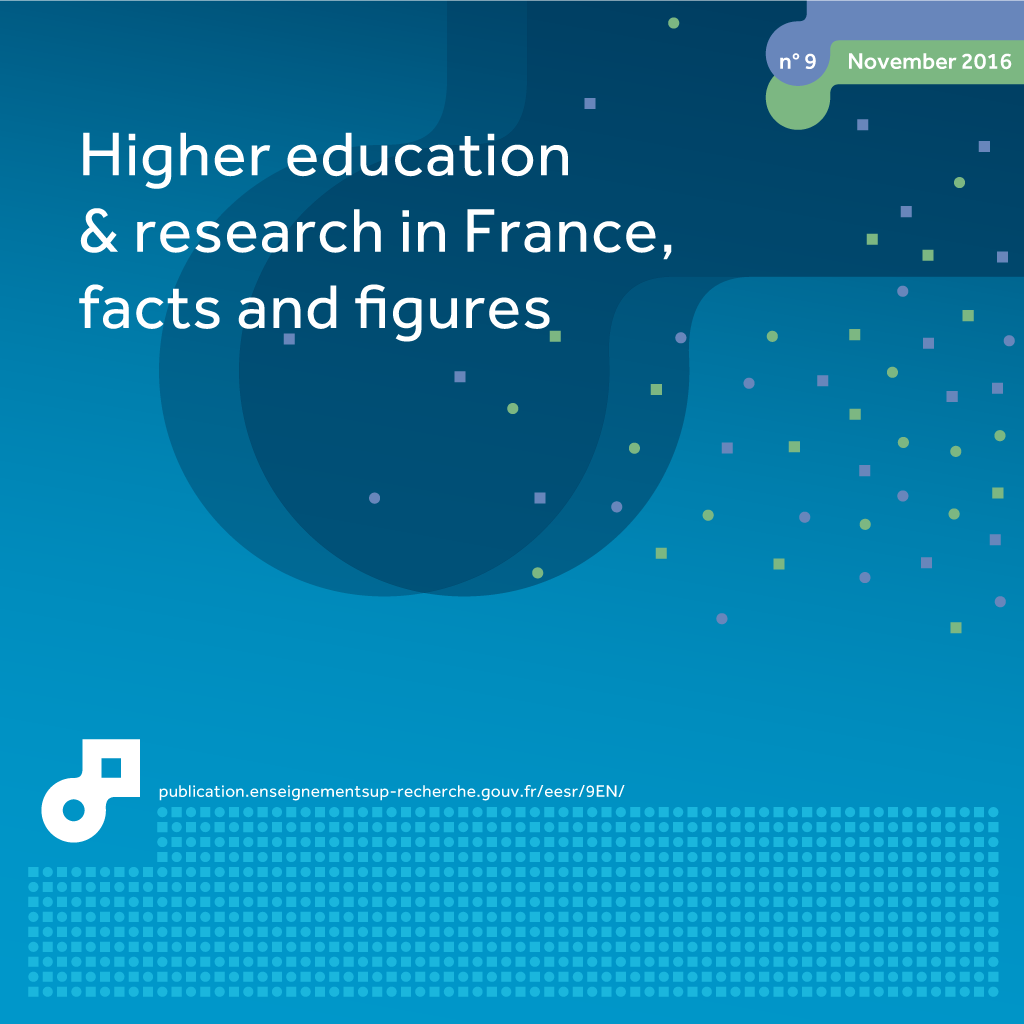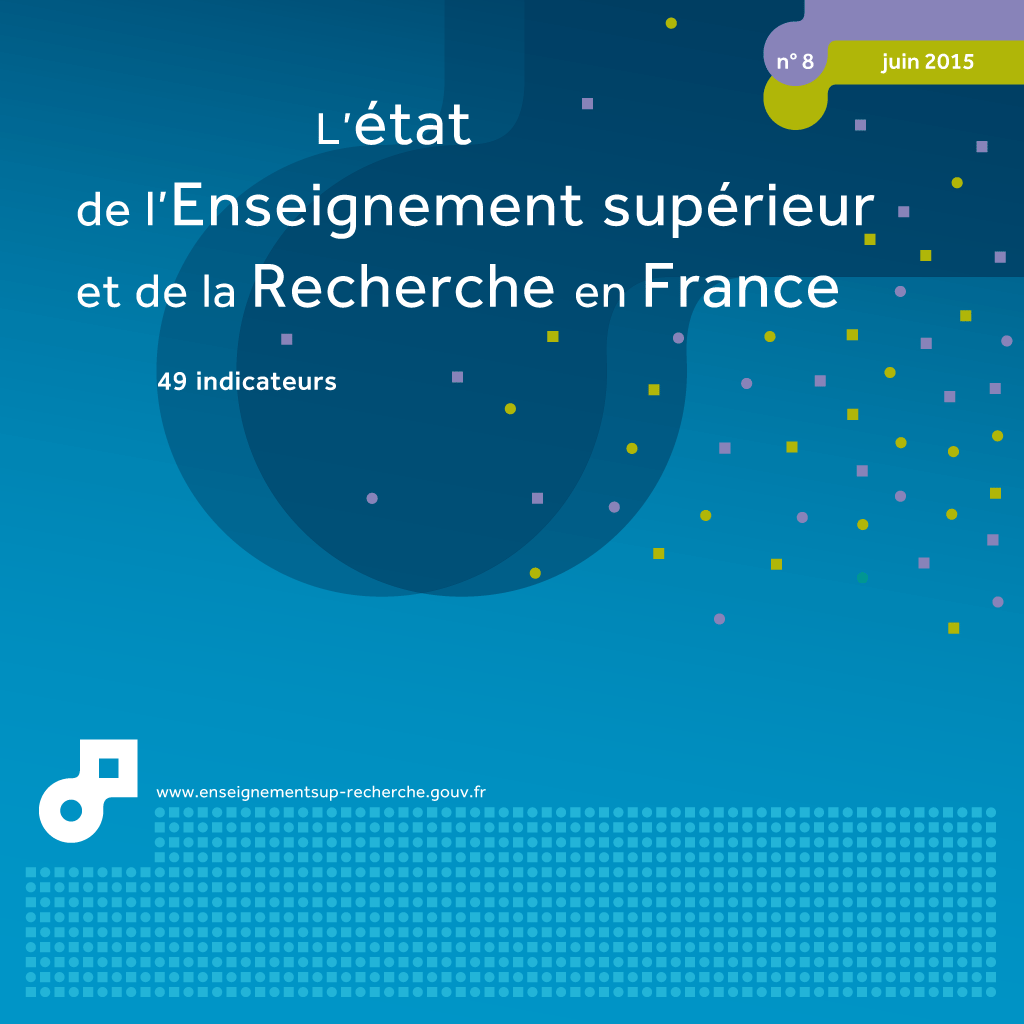20 level of education according to social background
This page has been updated. Read 21. level of education according social background in Higher education & research in France, facts and figures 10th edition - June 2017
Children whose parents work as managers or in middle management are more likely to succeed in their studies. They are proportionally more likely to obtain a baccalauréat, enrol in higher education and achieve higher education qualifications. However, inequalities have been reduced by the fact that access to higher education has improved most significantly for those from the most disadvantaged social backgrounds, although they still remain marked.
Secondary and higher education made strong progress up until the mid-1990s. This is reflected in the fact that they became increasingly accessible to people from all social backgrounds. Despite this, variations between children from different social backgrounds remain, although they have been somewhat mitigated.
In 2013, 71% of young people aged between 20 and 24 held a baccalauréat (chart 20.01). The democratisation of education over the course of the 20th century meant that people from all social backgrounds were more likely to obtain a baccalauréat. 59% of those aged 20-24 whose parents are manual workers or employees have a baccalauréat. This percentage is twice that recorded for previous generations: only 28% of those now aged 45-49 whose parents were manual workers or employees hold this qualification. This increase in the number of young people obtaining a baccalauréat is also found among children whose parents sit at the top of the social ladder, although the increase was less marked (86% compared to 69%, i.e. a factor of 1.3, as compared with 2.2 for the children of manual workers and employees), hence the shrinking gap between children from different social backgrounds. However, for all ages, children whose parents work as managers or in ‘middle management’ remain the most likely to obtain a baccalauréat.
As a result of continuing efforts to broaden access to secondary education, higher education institutions accepted many more students in the early 1990s. In 2013, 59% of young people aged between 20 and 24 had or had had access to higher education (regardless of whether they graduated), as compared with only 32% of those now aged between 45 and 49 (chart 20.02). This improved access to higher education was again most significant for children from the most disadvantaged backgrounds, to such an extent that the gap between those from different social backgrounds was reduced. As a result, among young people aged between 20 and 24, children whose parents work as managers or in middle management were nearly twice as likely to be studying or have studied at a higher education institution as children whose parents are manual workers or employees (79% compared to 46%). In the case of people aged between 45 and 49, they were three times more likely to be studying or have studied at a higher education institution (58% as compared with 20%).
For the 2011-2013 period, 65% of young people aged 25-29 whose parents work as managers or in middle management obtained a higher education qualification, as compared with 31% of children whose parents are manual workers or employees (chart 20.03). The former group was also more likely to achieve a higher level of education: for the 2011-2013 period, 30% of them obtained a Master’s degree, diploma of advanced studies (Diplôme d’études approfondies – DEA), specialised graduate diploma (Diplôme d’études supérieures spécialisées – DESS), PhD or qualification from a Grande École, as opposed to only 7% of those whose parents are manual workers or employees. However, there was little variation between children from different social backgrounds in the case of vocational higher education short courses: 14% of children whose parents work as managers or in middle management obtained a higher technical certificate (Brevet de technicien supérieur – BTS), university technology diploma (Diplôme universitaire de technologie – DUT) or equivalent qualification, as compared with 12% of children whose parents are manual workers or employees. These proportions are fairly similar to those recorded for the 2003-2005 period.
How to cite this paper :
close
Key figures
Metropolitan France
Metropolitan France
Metropolitan France
Metropolitan France
Metropolitan France
Metropolitan France
20.01 Proportion of people with a baccalauréat in 2013 by age and social background (%)
In 2013, 71% of young people aged between 20 and 24 held a baccalauréat. 86% of young people aged 20-24 whose fathers work as managers or in middle management held a baccalauréat, as compared with 59% of those whose fathers are manual workers or employees.
You can embed this chart to your website or your blog by copying the HTML code and pasting it into the source code of your website / blog:
close
20.02 Access to higher education in 2013 by age and social background (%)
In 2013, 60% of young people aged between 20 and 24 were studying or had studied at higher education institutions. Within this age group, the figure was 74% for young people whose fathers work as managers or in middle management, against 38% of those whose fathers are manual workers or employees.
You can embed this chart to your website or your blog by copying the HTML code and pasting it into the source code of your website / blog:
close
20.03 Qualifications held by young people aged 25-29, broken down by social background (for the periods 2003-2005 and 2011-2013)
You can embed this chart to your website or your blog by copying the HTML code and pasting it into the source code of your website / blog:
close
Translation
 Etat de l'enseignement supérieur et de la rechercheL'état de l'Enseignement supérieur et de la Recherche en France n°8 - juin 2015
Etat de l'enseignement supérieur et de la rechercheL'état de l'Enseignement supérieur et de la Recherche en France n°8 - juin 201520 - le niveau d'études selon le milieu social - Béatrice Le Rhun







